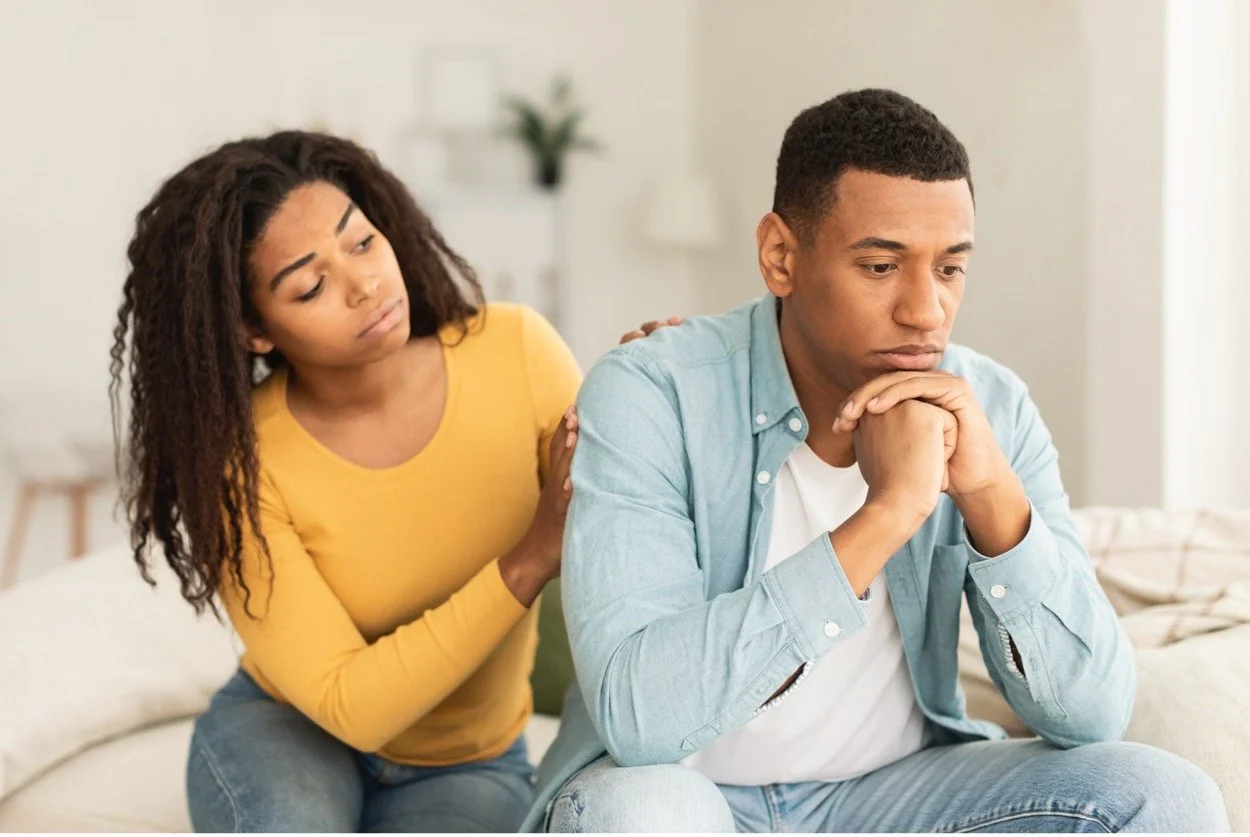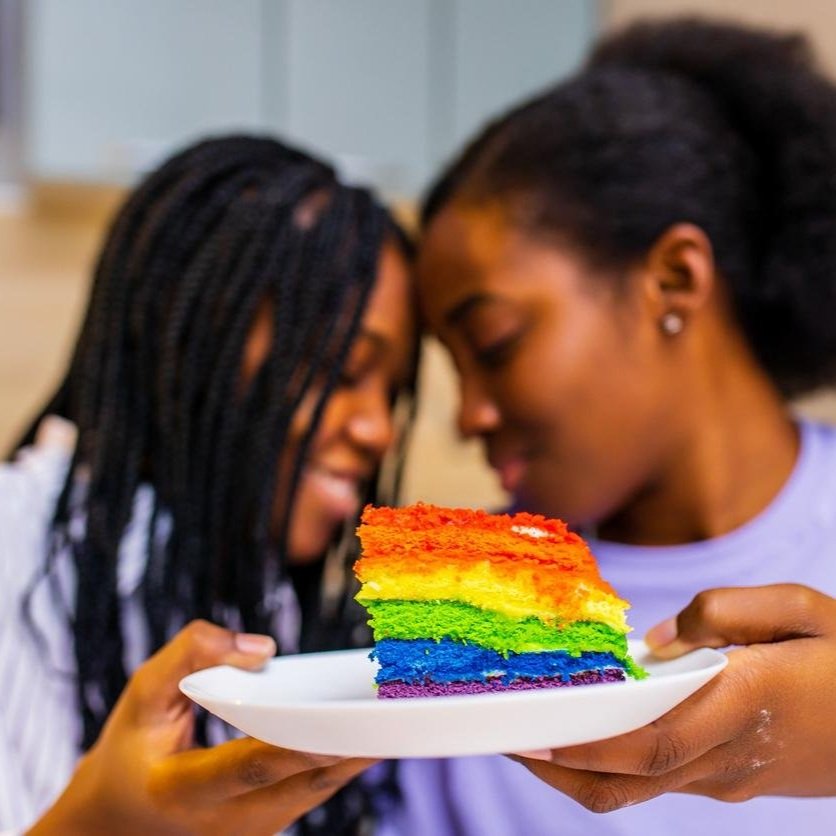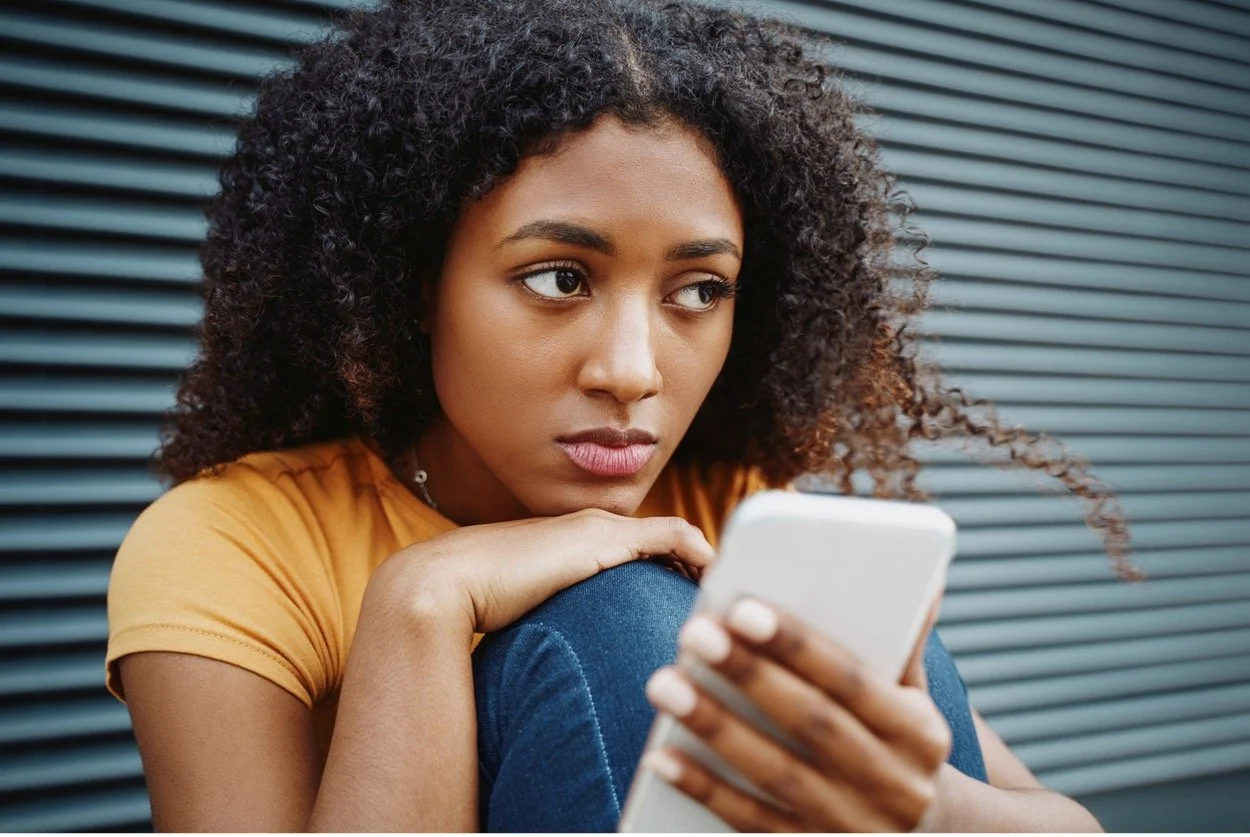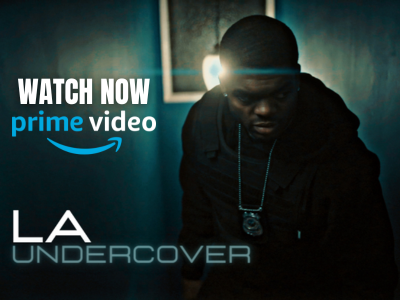Transforming Pain into Purpose: A Powerful Journey of Healing and Impact
By taking the pain and turning it into purpose, we not only heal ourselves but also help others who may be going through similar struggles. We discuss it here!
Photo Credit: Zolotarevs
By: Jamila Gomez
Turning pain into purpose is a powerful way to transform your life. When we experience pain, whether it is physical, emotional, or psychological, it can be overwhelming and consume our thoughts and energy. However, pain can also be a catalyst for growth and transformation. By taking the pain and turning it into purpose, we not only heal ourselves but also help others who may be going through similar struggles.
Pain can come in many forms: a debilitating illness, the loss of a loved one, heartbreak, injustice, trauma, failure, and disappointment. These experiences can leave us feeling helpless, lost, and defeated. However, the pain can also serve as a wake-up call to reassess our lives, values, beliefs, and goals. It can help us to connect with our inner selves and recognize what truly matters to us.
When we turn pain into purpose, we take control of our lives and use the pain to fuel our passions and make a positive impact on the world. For instance, a person who has survived cancer may become an advocate for cancer research and help raise awareness and funds for the cause. A person who has lost a child to suicide may establish a non-profit organization to help prevent youth suicide and support families who have experienced similar losses. A person who has faced discrimination and inequality may use their experiences to fight for equal rights and social justice.
Turning pain into purpose requires courage, resilience, and a willingness to let go of the past and move forward. It also requires self-reflection and self-care, as it can be emotionally taxing to confront and process painful experiences. However, the rewards of turning pain into purpose are immense. It can bring a sense of purpose, meaning, and fulfillment to our lives by making a difference in the lives of others. It also helps us to reclaim our power and not be defined by our pain.
Turning pain into purpose can be a transformative process that enables us to use our pain to create purpose and meaning in our lives. By embracing our pain and using it to fuel our passions and goals, we can make a positive impact on the world and transform our lives in the process.
YOU MAY ALSO BE INTERESTED IN:
SHARE TO SOCIAL MEDIA
Decoding Love: True Connection vs. Unhealthy Attachments in Relationships
It's important to understand the differences between true love and unhealthy attachments, such as trauma bonds, to have more fulfilling and healthy relationships. We discuss it here!
Photo Credit: G-Stock Studio
By: Jamila Gomez
Love and relationships are complex and can sometimes be difficult to navigate. It's important to understand the differences between true love and unhealthy attachments, such as trauma bonds, to have more fulfilling and healthy relationships.
True love is a deep and genuine connection between two people based on respect, trust, and mutual understanding. It is rooted in empathy, compassion, and emotional intimacy. True love is characterized by openness, honesty, and vulnerability. Both partners are supportive of each other's growth and well-being, and they communicate openly and effectively. True love is not based on power dynamics or control but rather on equality and partnership.
On the other hand, a trauma bond is a toxic and unhealthy attachment that is formed as a result of a traumatic experience or an abusive relationship. It often involves intense loyalty and devotion to a person who has caused harm or suffering. Trauma bonds can be difficult to break, as they are often rooted in a cycle of abuse and dependence. In a trauma bond, one partner may feel a sense of power and control over the other, leading to a dynamic of manipulation and coercion.
There are several key differences between true love and a trauma bond:
Communication:
In a relationship based on true love, communication is open, honest, and respectful. Both partners feel comfortable expressing their thoughts, feelings, and needs. In a trauma bond, communication is often fraught with conflict, miscommunication, and manipulation.
Trust:
True love is built on trust and honesty. Both partners feel secure and confident in their relationship. In a trauma bond, trust is often broken and difficult to rebuild. One partner may feel a sense of paranoia or anxiety about the other's intentions.
Support:
In a healthy relationship, both partners support each other's goals and dreams. They provide emotional and practical support to help each other grow and succeed. In a trauma bond, support may be conditional and used as a tool for manipulation and control.
Boundaries:
True love respects boundaries and personal space. Partners are sensitive to each other's needs and boundaries. In a trauma bond, boundaries are often crossed and violated, leading to feelings of resentment and betrayal.
Ultimately, it's important to recognize the difference between true love and a trauma bond to cultivate healthy and fulfilling relationships. If you find yourself in a toxic or abusive relationship, it's important to seek support and guidance from a therapist or counselor. Remember, you deserve to be in a loving and respectful relationship that brings out the best in you.
YOU MAY ALSO BE INTERESTED IN:
SHARE TO SOCIAL MEDIA
Red for a Reason: Don't Ignore the Flags
Red flags are warning signs or indicators that something may be wrong in a relationship, and choosing to ignore them can lead to a host of negative consequences. We discuss it here!
Photo Credit: Shutterstock - SpeedKingz
By: Jamila Gomez
Ignoring red flags in relationships can be extremely dangerous and detrimental to one's emotional well-being. Red flags are warning signs or indicators that something may be wrong in a relationship, and choosing to ignore them can lead to a host of negative consequences.
One major reason why ignoring red flags is dangerous is that it can lead to a cycle of toxicity and unhealthy patterns. When red flags are ignored, it allows problematic behavior to go unchecked and can perpetuate a cycle of abuse, manipulation, or disrespect. This can have a damaging effect on one's self-esteem and mental health, as the person may start to believe that they deserve to be treated poorly or that this is normal behavior in a relationship.
Ignoring red flags can also lead to feelings of betrayal and a breakdown of trust in the relationship. When warning signs are ignored, it can create a sense of uncertainty and insecurity in the relationship, as the person may start to question whether they can trust their partner or if they truly know who they are. This erosion can weaken the foundation of the relationship and make it difficult to build a healthy and lasting connection.
Furthermore, ignoring red flags can prevent individuals from setting healthy boundaries and advocating for their own needs. When warning signs are dismissed, it can be easy to fall into a pattern of sacrificing one's well-being to keep the peace or avoid conflict. This can lead to feelings of resentment and unfulfillment, as the person may be constantly putting their partner's needs ahead of their own.
In some cases, ignoring red flags can also put individuals at risk of physical harm. Red flags such as controlling behavior, aggression, or substance abuse can escalate into dangerous situations if left unchecked. It is important to take these warning signs seriously and seek help if necessary to ensure one's safety.
Overall, ignoring red flags in relationships is a dangerous behavior that can have serious consequences. It is important to pay attention to warning signs and listen to your intuition, as it can help protect you from harmful situations and lead to healthier, more fulfilling relationships. Remember that it is never too late to address red flags and take steps toward creating a safe and respectful partnership.
YOU MAY ALSO BE INTERESTED IN:
SHARE TO SOCIAL MEDIA
What Are We? The Problem with Defining Relationships
Why is it that men sometimes resist placing a label on a relationship? We discuss it here!
Photo Credit: Shutterstock
By: Jamila Gomez
It is common to find men who shy away from putting a title on their partnerships. Perhaps you've experienced a perplexing situation where, despite spending significant time and energy with someone, they still hesitate to identify your connection. While it's important to remember that generalizations can't be applied to every individual, this phenomenon frequently occurs. So why is it that men sometimes resist placing a label on a relationship? Let's explore some possible reasons.
Fear of Commitment
Commitment can be an intimidating prospect for many people, regardless of gender. Some men may perceive defining a relationship as a step towards increased commitment, which could make them feel trapped or restricted. It may stem from anxiety about losing their freedom, spontaneity, or the fear of becoming emotionally available to someone else.
Independence and Autonomy
Men, like women, greatly value their independence and autonomy. This desire for self-reliance might make them hesitant to put a label on a relationship. Often, men associate titles with certain expectations or obligations, leading them to fear losing their individuation within the partnership.
Avoidance of Pressure and Expectations
Similarly, avoiding titles can alleviate pressure and expectations within the relationship. Men may want to keep things relaxed and free from societal norms or the traditional progressions that come with labeling a partnership. By avoiding titles, they can focus on enjoying the connection without being burdened by societal or personal anticipations.
Fear of Judgment or Change
When a relationship is labeled, it becomes subject to societal judgment and scrutiny. Men might resist defining the connection to avoid potential judgment from friends, family, or even their internal fears. Furthermore, change can be daunting, and defining a relationship often signals a shift toward more serious territory. Men might prefer to keep things undefined to maintain the familiar and avoid any disruptions it may cause.
Prioritizing Compatibility and Growth
For some men, focusing on compatibility and personal growth takes precedence over labels. They may prioritize the quality of the relationship rather than adhering to societal norms. Leaving the partnership open-ended allows the connection to evolve naturally, focusing on emotional compatibility, shared values, and personal growth rather than an explicit label.
It is crucial to remember that each person's motivations and preferences differ, regardless of gender. Some men might willingly embrace labeling a relationship, whereas others may need more time or have different priorities. Communication remains the key to navigating these situations successfully. Openly discussing expectations, desires, and fears can help both partners understand each other's perspectives and find a compromise that satisfies both parties.
YOU MAY ALSO BE INTERESTED IN:
SHARE TO SOCIAL MEDIA
5 Reasons Black Women Choose to Embrace Singleness
In recent years, there has been a noticeable increase in the number of Black women choosing and proudly embracing the single life. We discuss it here!
Photo Credit: Delmaine Donson via iStockPhoto.com
By: Jamila Gomez
In recent years, there has been a noticeable increase in the number of Black women choosing and proudly embracing the single life. Whether in professional settings, social circles, or the media, many Black women are consciously opting to prioritize their personal growth, independence, and overall well-being by remaining unattached. While societal stereotypes may suggest that this trend is a product of difficulty finding suitable partners or commitment issues, the truth is far more complex and empowering. Let’s shed light on why Black women are increasingly choosing to be single and celebrate their independence, self-love, and freedom.
1. Breaking Societal Expectations:
Black women have long been burdened with societal expectations regarding relationships and marriage. Traditional norms often depicted them as caretakers, sacrificing their own interests and dreams. However, a cultural shift has magnified the importance of self-worth and autonomy, challenging these outdated stereotypes. Modern Black women are embracing their identity, pursuing their passions, and refusing to feel pressured into relationships that do not align with their personal goals.
2. Prioritizing Personal Growth:
Choosing to be single allows individuals to fully commit to personal growth without distractions. Black women, like anyone else, desire to explore their full potential, build successful careers, and cultivate their own identities. By remaining single, these women can channel their energy into self-development, education, and professional goals, empowering themselves both personally and financially.
3. Reclaiming Control Over Relationships:
Historically, Black women's relationships have been influenced by systemic injustices, such as the reinforcement of stereotypes, oppressive gender roles, racism, and the persistent struggle for equality. By choosing singleness, Black women can reclaim control over their romantic lives, deciding for themselves what they need, desire, and deserve in a partnership. Opting for singleness empowers Black women to negotiate their own terms, building relationships based on mutual respect and equality.
4. Healing and Self-Love:
Embracing the single life enables Black women to invest more time in self-care, emotional healing, and self-love. In a society that hasn't always prioritized them, this decision allows them to focus on introspection, self-reflection, and rediscovering themselves. It serves as a powerful act of self-affirmation, fostering mental and emotional well-being, and paving the way for healthier future relationships.
5. Disrupting Stereotypes:
By actively choosing to be single, Black women demonstrate that their worth and happiness are not tied to their relationship status. This self-affirming decision challenges stereotypes that have perpetuated the notion that a woman's ultimate goal and fulfillment rest solely within a romantic partnership. It breaks free from the notion that singledom implies inadequacy, loneliness, or failure, urging society to recognize and respect the diverse paths women choose to follow.
As more Black women confidently embrace the single life, they are forging new paths, reclaiming their power, and rewriting societal narratives. Their decision to remain unattached is rooted in self-love, personal growth, and a desire for independence. By challenging traditional expectations, they demonstrate that fulfillment thrives not only within relationships but also in the realms of individuality, growth, and empowerment. In doing so, Black women are redefining their identities and inspiring others, sparking conversations around self-worth, personal fulfillment, and the importance of autonomy for women everywhere.
YOU MAY ALSO BE INTERESTED IN:
SHARE TO SOCIAL MEDIA
Emotional Unavailability: The Silent Barrier in Relationships
In the vast world of relationships, emotional availability plays a crucial role in creating and maintaining a healthy bond. We discuss it here!
Photo Credit: Prostick-Studio via iStockPhoto.com
By: Jamila Gomez
In the vast world of relationships, emotional availability plays a crucial role in creating and maintaining a healthy bond. It is the ability to connect with another person at a deep emotional level, being present and responsive to their needs. But what happens when one or both partners struggle with emotional unavailability? This silent barrier can significantly impact the quality and longevity of a relationship.
Emotional unavailability refers to an individual's inability or unwillingness to be emotionally vulnerable with their partner. It might manifest in various ways, such as avoiding discussions about feelings, showing a lack of interest in their partner's emotions, or even becoming distant and detached. While it is essential to acknowledge that everyone has their own emotional needs and boundaries, emotional unavailability becomes an issue when it hinders growth and intimacy within a relationship.
Factors of emotional unavailability
One of the primary causes of emotional unavailability is past trauma or unresolved emotional wounds. Previous experiences, such as a history of abuse or neglect, can create deep-rooted fears and anxieties that make it difficult for individuals to trust and open up. They may have developed defense mechanisms to protect themselves from further emotional harm, leading to an emotional wall that isolates them from their partner.
Another significant factor is a fear of rejection or abandonment. Past heartbreaks or the fear of vulnerability can lead individuals to avoid getting too close to someone else emotionally. They may have convinced themselves that emotional distance is a way to protect themselves from inevitable pain, but in reality, it prevents them from experiencing the deep connections and love they desire.
Emotional unavailability isn't limited to avoiding emotions; it can also come in the form of emotional over-investment in other areas of life. Work, hobbies, or addictions can serve as distractions, allowing individuals to avoid addressing their emotions or connecting with their partner on a deeper level. The constant busyness or focus on external accomplishments creates a barrier that prevents them from fully engaging in the relationship.
Effects Of Emotional Unavailability
The effects of emotional unavailability can be detrimental to a relationship. It creates a sense of disconnection, leaving the emotionally available partner feeling isolated, unimportant, and even desperate for emotional reciprocity. The lack of emotional support may cause them to question their partner's love or commitment, leading to increased anxiety and stress within the relationship.
Over time, the emotionally available partner may begin to withdraw, protecting themselves from further emotional pain. This cycle of disconnection and detachment can ultimately erode the foundation of the relationship, leading to communication breakdowns, resentment, and even the end of the relationship altogether.
Recognizing emotional unavailability in oneself or a partner is the first step towards addressing the issue. It requires a willingness to be introspective and explore the underlying causes of this emotional barrier. Seeking therapy or counseling can be immensely helpful, as it provides a safe space to unpack past trauma and develop healthier ways of engaging emotionally in relationships.
For the emotionally unavailable partner, understanding their fears and learning to trust their partner is crucial. Slowly allowing themselves to be vulnerable, step by step, can help rebuild the foundation of trust and intimacy. Being open to honest communication, empathizing with their partner's emotions, and actively participating in relationship-building activities can all contribute to bridging the emotional gap.
YOU MAY ALSO BE INTERESTED IN:
SHARE TO SOCIAL MEDIA
8 Questions to Ask in the Early Stages of Dating
Dating is an exciting and often nerve-wracking experience, especially in the early stages when you're getting to know someone. Here are 8 important questions to ask in the early stages of dating! We discuss it here!
Photo Credit: skynesher via iStockPhoto.com
By: Jamila Gomez
Dating is an exciting and often nerve-wracking experience, especially in the early stages when you're getting to know someone. As you start to explore the potential for a deeper connection, it's essential to ask the right questions to gain insight into your partner's values, beliefs, and goals. Asking the right questions can help you understand if you’re compatible and act as a foundation for a healthy and long-lasting relationship. Here are some important questions to ask in the early stages of dating:
What are you looking for in a relationship?
Understanding your partner's relationship goals is crucial to ensure you're on the same page. Some people might be looking for something casual, while others might be seeking a committed and long-term partnership. Asking this question early on can save both parties from significant heartache down the line if their expectations don't align.
What are your interests and hobbies?
Finding shared interests and hobbies is an excellent way to bond and build a connection. It also provides an opportunity to learn about each other's passions and gauge if you have enough common ground to sustain a relationship.
How do you handle conflict or disagreements?
Conflict is inevitable in any relationship, and understanding how they handle disagreements can give you insights into their communication style and problem-solving abilities. Look for someone who is open to dialogue, compromise, and constructive resolution rather than someone who avoids conflicts entirely or becomes aggressive.
How do you spend your free time?
Understanding how your partner spends their free time can reveal their priorities and values. It can also help you gauge if they have a healthy work-life balance or if their lifestyle aligns with yours.
What are your long-term aspirations and goals?
A person's vision for their future is an integral part of their identity. Asking about their long-term aspirations and goals will not only provide you with a glimpse into their ambitions but also help you ensure they align with your own aspirations and overall life goals.
What has been your most significant life experience or achievement?
Asking about a person's significant life experience or achievement can give you deeper insight into their personal growth and the values they hold dear. It also provides an opportunity for meaningful storytelling and bonding.
Do you have any deal-breakers in a relationship?
We all have deal-breakers, specific behaviors, or characteristics that we cannot compromise on in a relationship. Asking this question can help you better understand your partner's boundaries, and it allows you both to consider if you can meet each other's needs without compromising your principles.
What are your views on [insert important topic]?
Depending on your personal values, it can be crucial to ask about specific topics that matter most to you, like religion, politics, or family dynamics. These conversations can help you gauge compatibility and ensure you have shared values on what could be important issues.
Remember, these questions are meant to foster meaningful conversations and help you assess your compatibility. While it's essential to ask questions, it's equally important to actively listen and respect your partner's responses. Communication and understanding are key to building a strong and lasting connection.
YOU MAY ALSO BE INTERESTED IN:
SHARE TO SOCIAL MEDIA
Reprogramming Limiting Beliefs: Unlocking Love and Relationships
The first step in reprogramming any belief is to become aware of it. Here are some tips to help you in your journey of shifting your mindset. We discuss it here!
Photo Credit: skynesher via iStockPhoto.com
By: Jamila Gomez
Love and relationships are an integral part of our lives, shaping our happiness and emotional well-being. However, sometimes we find ourselves trapped in negative beliefs that hinder our ability to experience fulfilling and healthy connections. By identifying and reprogramming these limiting beliefs, we can open ourselves up to the possibility of creating more love and joy in our lives. Here are some tips to help you in your journey of shifting your mindset.
Recognize your limiting beliefs:
The first step in reprogramming any belief is to become aware of it. Pay attention to any negative thoughts or patterns that arise when you think about love and relationships. Are there underlying beliefs like "love is hard," "all men/women are untrustworthy," or "I'm not deserving of love"? Acknowledging them is vital for reshaping your mindset.
Challenge your beliefs
Once you've identified your limiting beliefs, question their validity. Ask yourself if there is any evidence that supports or contradicts these beliefs. Often, our negative beliefs are based on past experiences, but it's important to recognize that they may not always be accurate or applicable to every situation.
Reframe your perspective
Replace negative beliefs with positive affirmations. For example, if you believe that "love always ends in heartbreak," reframe it as "every experience teaches me and allows me to grow." Affirmations help rewire our brains and create a more positive mindset, allowing us to approach love and relationships with optimism.
Practice self-compassion
Be gentle with yourself as you work on reprogramming your beliefs. Understand that transforming ingrained patterns takes time and effort. Treat yourself with kindness and compassion throughout the process, as self-love is a crucial aspect of building healthier relationships.
Surround yourself with support
Seek out the company of people who encourage and uplift you. Surrounding yourself with positive influences can counteract the effects of negative beliefs and reinforce your commitment to reprogramming your mindset. Friends, family, or support groups who share similar goals can provide invaluable support and motivation.
Challenge your comfort zone
Stepping out of your comfort zone is an essential part of reprogramming limiting beliefs. Push yourself to engage in new experiences, meet diverse people, and create opportunities to challenge your negative assumptions. By doing so, you'll discover that the world is filled with possibilities for love and happiness.
Seek professional help if needed
If you find it challenging to overcome deeply ingrained beliefs, therapy can be an effective tool. A qualified therapist can guide you through the process of identifying and reprogramming limiting beliefs, providing valuable insights and techniques tailored to your specific situation.
Focus on personal growth
Emphasize personal growth and self-improvement as a foundation for healthy relationships. This mindset shift allows you to approach relationships from a place of strength and self-assuredness, letting go of the notion that your happiness solely depends on someone else.
Reprogramming limiting beliefs about love and relationships requires patience, commitment, and self-reflection. By engaging in these practices and embracing a positive mindset, you can break free from negative patterns and create a more fulfilling and loving life. Remember, love is abundant, and you are deserving of it.
YOU MAY ALSO BE INTERESTED IN:
SHARE TO SOCIAL MEDIA
5 Reasons Black Women Struggle To Find Genuine Love
In the intricate dance of love and relationships, Black women confront a unique set of challenges that weave through societal stereotypes, cultural expectations, and historical narratives, creating a tapestry of complexities that shape their pursuit of genuine love. We discuss 5 reasons black women struggle to find love here!
Photo Credit: Prostock-Studio via iStockPhoto.com
By: Jamila Gomez
In the intricate dance of love and relationships, Black women confront a unique set of challenges that weave through societal stereotypes, cultural expectations, and historical narratives, creating a tapestry of complexities that shape their pursuit of genuine love.
Persistent Stereotypes and Media Representation:
In the realm of love, Black women often find themselves facing persistent stereotypes that inadvertently create barriers to genuine connections. The portrayal of Black women as strong, independent, and self-reliant discourages vulnerability, implying an expectation to face struggles alone. Consequently, expressing emotional needs and fears becomes a daunting task, as it might be perceived as a sign of weakness or neediness.
Racial Bias and Prejudice:
Dating dynamics are influenced by racial bias, with studies suggesting that Black women experience discrimination both offline and online. Dating apps, in particular, report racial biases in profile preferences, resulting in a diminished likelihood of Black women receiving positive responses. These biases not only perpetuate harmful stereotypes but also undermine the chances of Black women finding authentic connections.
Cultural Expectations and Family Pressures:
Cultural expectations and family pressures play a significant role in shaping Black women's pursuit of genuine love. Balancing the honor of family traditions with the pursuit of personal happiness can create internal conflicts, complicating the journey toward enduring love.
Intersectionality and Double Discrimination:
The struggles faced by Black women are compounded by intersectionality, navigating both race and gender-based discrimination. This double discrimination affects confidence, self-esteem, and overall dating experiences, highlighting the need for society to understand and address the complexities of identity while fostering an inclusive platform for finding love.
Historical Narratives and Emotional Baggage:
Centuries of enslavement, systemic racism, and societal marginalization have left an enduring impact on the Black community. Historical narratives of relationships and lovelessness can impact Black women's emotional well-being, creating obstacles when trying to find genuine love. Addressing this emotional baggage requires acknowledgment, empathy, and healing; it is a necessary step toward fostering lasting love.
In recognizing and dismantling these barriers, society can pave the way for a more inclusive and equitable dating landscape. It is not merely about understanding; it's about actively challenging biased notions, fostering empathy, and providing platforms that celebrate diverse love stories. The road to discovering authentic love for Black women involves grappling with stereotypes, racism, cultural expectations, and emotional baggage. By acknowledging these challenges, society can debunk prejudices and ensure all individuals have the opportunities and support they deserve in their quest for genuine love.
YOU MAY ALSO BE INTERESTED IN:
SHARE TO SOCIAL MEDIA
Self-Sabotage: Getting in Our Own Way in Love
Self-sabotage in relationships can take various forms, such as pushing away a partner, avoiding commitment, or engaging in destructive behaviors. We discuss it here!
Photo Credit: Pheelings Media via iStockPhoto.com
By: Jamila Gomez
Relationships are complex and often demand effort, compromise, and vulnerability from both individuals involved. However, some individuals may repeatedly engage in self-sabotaging behaviors. Self-sabotage in relationships can take various forms, such as pushing away a partner, avoiding commitment, or engaging in destructive behaviors. To understand why people self-sabotage in relationships, it's essential to explore several underlying factors and patterns.
Fear of Intimacy:
For some, past negative experiences, trauma, or a fear of vulnerability can trigger self-sabotaging behaviors. Consequently, individuals may emotionally withdraw, be overly critical, or create conflicts to protect themselves from potential emotional pain.
Low Self-Worth:
A lack of self-worth can lead to self-sabotage in relationships. Those with low self-esteem may engage in behaviors undermining their relationships, such as seeking validation outside the relationship or questioning their partner's intentions.
Fear of Rejection:
The fear of rejection can be a powerful force. Individuals who've experienced past rejections may engage in behaviors pushing their partner away before facing potential rejection.
Commitment Issues:
Some struggle with commitment due to deep-seated fears and insecurities. Commitment phobia may manifest as self-sabotage when facing the possibility of a long-term relationship.
Unrealistic Expectations:
Unrealistic expectations can strain relationships. Holding high standards for oneself or their partner can lead to self-sabotage, resulting in constant disappointment.
To overcome self-sabotage, individuals should seek self-awareness and understand the root causes triggering their disruptive behaviors. Consider therapy or counseling to address emotional wounds, insecurities, or fears. Building healthy self-esteem is crucial, enabling individuals to participate in loving relationships without self-sabotage.
Communication is key. Open and honest conversations with a partner can help express fears and concerns, fostering a supportive environment. Embracing vulnerability and learning to trust oneself and the partner can help overcome self-sabotaging patterns, cultivating healthier connections
YOU MAY ALSO BE INTERESTED IN:
SHARE TO SOCIAL MEDIA
The Evolution of Dating and Relationships in the Social Media Era
While there are undeniable advantages to the rise of social media in the dating world, there are also significant downsides, creating a complex and multifaceted impact. We discuss it here!
Photo Credit: Vladimir Vladimirov via iStockphoto.com
By: Jamila Gomez
In just a few short years, social media has drastically changed the landscape of dating and relationships. It has not only revolutionized how people meet, connect, and communicate but has also influenced the way individuals perceive themselves and others. While there are undeniable advantages to the rise of social media in the dating world, there are also significant downsides, creating a complex and multifaceted impact.
One of the most apparent changes brought about by social media is the way people meet and form relationships. Online dating platforms, such as Tinder, Bumble, and OkCupid, have become increasingly popular, with millions of users worldwide. They offer a convenient and efficient way for individuals to search for potential partners based on shared interests, compatibility, and location.
Moreover, social media has opened up new avenues for communication and connection. Platforms like Facebook, Instagram, and Twitter provide endless opportunities to interact with others, breaking traditional barriers of time and space. Messages can be sent in an instant, photos can be shared with a click, and status updates allow individuals to keep up with each other's lives, even when physically distant.
However, this constant connectivity has also had negative ramifications in the dating world. One of the notable downsides of social media is the pressure it places on individuals to curate and present an idealized version of themselves. People carefully select which photos to upload, meticulously edit their posts, and often strive to portray an image of a perfect life. This phenomenon, commonly referred to as "highlight reel syndrome," can lead to feelings of inadequacy, as individuals compare their own lives to the seemingly perfect lives of others.
Furthermore, social media can breed feelings of jealousy and insecurity within relationships. With constant access to each other's online profiles, it becomes easy to monitor and scrutinize every interaction, like, or comment, leading to trust issues and increased suspicion. The presence of ex-partners or potential love interests on social media can also be a source of conflict, as individuals may feel threatened or uneasy about their partner's online behavior.
Another significant concern is the potential for cyberbullying and online harassment affecting relationships. Hurtful comments, rumors, or private information can easily go viral, leading to emotional distress, embarrassment, or even the breakdown of a relationship. Additionally, the constant presence of social media can lead to obsessive behavior, with individuals constantly checking their partner's online activity, making it difficult to maintain healthy boundaries and privacy.
Despite these challenges, social media has also facilitated positive changes in relationships. It provides a means for couples to stay connected even when physically apart, sharing experiences and fostering intimacy. It also allows individuals to express love and affection publicly, celebrating milestones or showcasing their commitment. For long-distance relationships, social media offers a platform where partners can communicate daily, bridging the physical gap.
Ultimately, the impact of social media on dating and relationships is a mixed bag. While it has broadened the playing field, making it easier for individuals to meet potential partners, it has also brought about challenges that can strain relationships. It is crucial for individuals to navigate the world of social media mindfully, finding a balance between the benefits and risks. Establishing clear boundaries, open communication, and setting realistic expectations can help harness the positive aspects of social media while mitigating its negative impact.
YOU MAY ALSO BE INTERESTED IN:
SHARE TO SOCIAL MEDIA
Why People Ghost Others: An Unsettling Trend in Modern Relationships
A concerning trend has emerged in modern relationships: ghosting. We discuss 5 reasons why you may have been ghosted here!
Photo Credit: tommaso79 via iStockphoto.com
By: Jamila Gomez
A concerning trend has emerged in modern relationships: ghosting. Picture this – you're invested in a connection, be it romantic, friendly, or familial, and suddenly, all communication ceases without warning. Ghosting has become increasingly prevalent in our tech-driven age, where disappearing from someone's life is as easy as tapping a button. But why do people choose to ghost others?
Fear of Confrontation and Conflict Resolution:
One primary reason for ghosting is the fear of confronting difficult conversations. Addressing feelings or concerns can be uncomfortable, leading some to opt for the easy way out – cutting off communication entirely.
Desire to Avoid Accountability and Closure:
Another contributing factor is the desire to shirk accountability. By ghosting without explanation, individuals absolve themselves of responsibility, leaving the other person confused and with unanswered questions.
Emotional Immaturity and Insecurity:
Ghosting can also be a result of emotional immaturity and insecurity. Some struggle to express their needs or confront their emotions, using ghosting as a shield against vulnerability and potential rejection.
Lack of Empathy and Emotional Disconnect:
In our screen-dominated society, emotional disconnect is common. Ghosting exemplifies this, as individuals fail to recognize the impact of their actions on others, possibly due to a lack of attachment or concern for the feelings of the person being ghosted.
The Overabundance of Options and FOMO:
Social media and dating apps present endless choices, fostering a fear of missing out. The constant search for the 'perfect' match can lead to a higher likelihood of ghosting, leaving the person on the receiving end as collateral damage.
While ghosting may seem like a convenient solution, it's emotionally damaging, eroding trust and stifling the development of healthy relationships. To combat this trend, promoting open communication, empathy, and understanding is crucial both online and offline. Let's foster relationships built on trust and respect.
YOU MAY ALSO BE INTERESTED IN:
SHARE TO SOCIAL MEDIA
4 Reasons You Don't Need Closure
Seeking closure has become a popular notion in our society, where individuals are taught to believe that finding a resolution after a breakup, the end of a friendship, or a significant loss is necessary for healing and moving forward. We discuss 5 reasons you don’t need closure here!
Photo Credit: skyNext via istockphoto.com
By: Jamila Gomez
Seeking closure has become a popular notion in our society, where individuals are taught to believe that finding a resolution after a breakup, the end of a friendship, or a significant loss is necessary for healing and moving forward. While it is indeed natural to desire answers or understanding, the idea of seeking closure, as often portrayed, can be misleading and counterproductive. Here are some reasons why seeking closure may ultimately be pointless and how letting go can be a more empowering and liberating approach to healing.
1. Closure is a subjective and elusive concept:
The concept of closure implies neatly tying up loose ends, getting answers, and achieving a sense of finality. However, in reality, closure is highly subjective and can vary significantly from person to person. What may bring closure to one person might not work for another. Expecting someone else to provide closure or waiting for external factors to bring a sense of resolution can lead to frustration and a prolonged healing process.
2. Closure does not always guarantee healing:
The misconception that closure is essential for healing often sets unrealistic expectations. The truth is, that closure is not a magical switch that automatically heals emotional wounds. Healing is a personal journey that involves introspection, self-reflection, and time for emotional acceptance. Seeking closure can divert attention away from self-growth and healing by fixating on the past, hindering progress toward the future.
3. Closure may not lead to answers:
We seek closure in the hopes of finding answers to our burning questions, but this is not always promised. Sometimes, the other party involved may not be willing or able to provide satisfactory answers. In such cases, relentlessly seeking closure can become a never-ending cycle of frustration and disappointment. Instead of seeking answers externally, it may be more productive to search within oneself and find resolution through personal introspection and self-discovery.
4. Letting go offers freedom and empowerment:
Rather than relentlessly seeking closure, individuals can benefit from embracing the art of letting go. Letting go is an active process that involves accepting the situation, acknowledging one's emotions, and allowing oneself to move forward. By focusing on self-healing and personal growth, individuals can experience liberation and empowerment. Letting go allows us to reclaim our power, create new beginnings, and forge a clearer path ahead.
While the desire for closure is a natural human instinct, fixating on obtaining it can impede personal growth and healing. Seeking closure can be an endless pursuit, often leading to more questions than answers. Understanding the futility of this pursuit, individuals can begin to embrace the power of letting go. By accepting the past, acknowledging emotions, and actively moving towards self-healing, individuals can forge a new path with strength, resilience, and a renewed sense of freedom. So rather than pursuing the elusive concept of closure, let us embrace the art of letting go and open ourselves to a world of endless possibilities.
YOU MAY ALSO BE INTERESTED IN:
SHARE TO SOCIAL MEDIA
Trusting What God Blocks In Relationships
Whether it is a failed romantic relationship, a missed opportunity, or a friendship that never takes off, many reasons can elucidate why God may block certain relationships from happening. We discuss it here!
Photo Credit: diego_cuervo via istockphot.com
By: Jamila Gomez
In the realm of relationships, it is not uncommon for individuals to find themselves puzzled as to why certain connections are blocked or prevented from flourishing. While it is easy to attribute these hindrances to external factors, some people believe that a higher power, often referred to as God, plays a role in such circumstances. Whether it is a failed romantic relationship, a missed opportunity, or a friendship that never takes off, many reasons can elucidate why God may block certain relationships from happening.
Divine Timing:
One reason God may block relationships is due to the notion of divine timing. Perhaps it is not the right moment for two individuals to come together, as God may have a greater plan in store for each of them that requires growth, development, or experiences outside that particular relationship. These divine timings can be influenced by various factors, such as personal growth, the pursuit of individual goals, or even the presence of other individuals who might impact the course of one's life.
Mismatched Values and Purpose:
Relationships thrive when individuals align in their values, beliefs, and visions for the future. However, if there is a significant mismatch in these aspects, God may prevent a relationship from unfolding to avoid potential disharmony, disappointment, or pain in the long run. It is said that God has a deep understanding of each person's purpose and the kind of people they need in their lives to fulfill it. Blocking relationships ensures that individuals embark on paths that align with their authentic selves.
Protecting Against Harm:
God may also block relationships as a way of shielding individuals from harm or toxic dynamics. Sometimes, people may not readily recognize certain red flags or hidden aspects of a person's character. In such cases, God, in his infinite wisdom and love, may intervene to protect them from potential heartbreak, manipulation, or even danger. The blocked relationship serves as a form of divine protection and shields individuals from harmful influences that might hinder their personal growth and well-being.
Learning and Personal Growth:
Relationships provide fertile ground for personal growth and self-discovery. However, not all connections contribute positively to one's development. Certain relationships might hinder personal progress, create unhealthy dependencies, or stall the pursuit of individual goals. In these scenarios, God may block such relationships to ensure individuals have the opportunity to grow independently, learn valuable lessons, and become the best version of themselves before engaging in a new connection.
Realigning Paths:
God's intervention in relationships can sometimes be a way of realigning individuals with their true purpose and the people who will help them fulfill it. By blocking one connection, God may be redirecting individuals towards another person who will have a more significant impact on their lives, steer them towards a different path, or present them with new opportunities for personal and spiritual growth. This redirection can be seen as a divine intervention, guiding individuals towards their ultimate destiny.
While it may be challenging to accept or understand why certain relationships are blocked, it is essential to trust that everything happens for a reason. Even when it may seem frustrating or disheartening, acknowledging that a higher power might be involved allows individuals to seek solace in the belief that there is a greater plan at work. Through faith and acceptance, one can find peace and move forward on their life's journey, confident that the right relationships will ultimately unfold when the time is right.
YOU MAY ALSO BE INTERESTED IN:
SHARE TO SOCIAL MEDIA
5 Ways To Identify A Narcissist
If you suspect you are in any kind of relationship with a narcissistic person, pay attention to these five signs. We discuss it here!
Photo Credit: Diva Plavalaguna via Pexels.com
By: Jamila Gomez
A narcissist is essentially someone who is excessively self-centered and obsessed with themselves. They constantly seek attention and validation from others and have little to no regard for anyone else’s feelings or needs. Narcissistic individuals can be highly controlling and manipulative, often using emotional manipulation to get what they want. They may also gaslight people, making them question their reality and memory. If you suspect you are in any kind of relationship with a narcissistic person, pay attention to the signs. Also, if you suspect that you are in any kind of relationship with a narcissist, it is essential to seek professional help so that you can learn how to best deal with this challenging individual.
Here are five red flags to look out for:
Excessive need for admiration and attention:
Narcissists have an excessive need for attention and admiration, manifesting as a desire to be the center of attention, a belief in their superiority, or a constant craving for affirmation and approval. While it is perfectly normal to want some level of attention and admiration from those important to us, narcissists take this to an extreme, often needing constant reassurance and validation.
Lack of empathy and disregard for other people’s feelings:
Narcissists have a bloated ego, a need for excessive admiration, and a lack of empathy for others. But what does that look like in a relationship? A narcissistic individual is often dismissive and critical, making the other person feel invisible. They can also become very angry quickly and lack the ability to see other people’s perspectives. As a result, the other person often feels emotionally drained and unsupported.
Taking advantage of people and using them to get what they want:
Narcissists are often very charming at first, but eventually, their true colors show. They are manipulative and controlling, taking advantage of people to get what they want. If you are in any kind of relationship with a narcissist, be aware of their behavior to protect yourself from being used.
Grandiose sense of self-importance:
Narcissists often have a flamboyant sense of prestige, magnifying their accomplishments and talents and expecting recognition as superior. They may become angry or disappointed when they feel they are not receiving the recognition they deserve. Some narcissists are control freaks, expecting their partner to comply with their standards and meet their needs without regard for the other person’s wants or needs.
Patterns of intense and unstable relationships, quickly switching from honor to reduction:
Narcissists often see their partners as perfect and unconditionally loving. However, eventually, they begin fault-finding, picking at every little thing they may take issue with. They may also withdraw their affection and become emotionally distant.
If you’re always around someone who exhibits these traits, you should either learn how to combat it or move on. Narcissists often take advantage of their partners by being manipulative and controlling. Pay attention to these red flags to help you make an informed decision about the future of your relationship.
YOU MAY ALSO BE INTERESTED IN:
SHARE TO SOCIAL MEDIA
There's Something Special About Black Love and It Should Be Celebrated
There's something very special about Black love and the bond that comes with it! We discuss it here!
By: Jordan King
While February is proudly Black History Month, we also observe a special day for the celebration of love in all forms and fashions. When it comes to speaking about love within the Black community at large, this topic is so vast and at times controversial. Everyone (rightfully so) has different and conflicting perspectives. However, all of our people deserve and are entitled to love; especially when we have done that inner work to heal and be the best version of a mate for your significant other!
To be able to love freely and unapologetically is a divine right. Love should not be complicated, however, naturally things happen. Now, for some reason when it comes to Black love; it’s not just complicated but complex. The presence of Blacks in America spans over 400 years yet somehow we have managed to maintain our kind. Traditionally, media has struggled with how to properly represent affection, care, and love when it comes to colored people. Often times our love is seen as too dramatic, toxic or situation based. Now of course that’s not to say that America misrepresents other cultures too.
Admittedly; while my parents are divorced, I have been grateful to witness other examples of healthy relationships and marriages. Also it’s very important to acknowledge the valleys in various stages of relationships, as not every day will be easy or disagreements will arise. On the other side, people can eventually grow apart and lead cordial lives. Nonetheless, the goal of our generation should be to not only redefine the definition of love in modern times; yet also maintain the essence of what love has always been!
The illusion of options will unfortunately make it hard for us to be able to properly find their person. In the past, people were relegated to shorter radiuses to find their lifelong partners. However, this also can be a positive! For instance, two people that were meant for each other but maybe distance would’ve prevented them from ever meeting; could manifest a connection through the tools of technology.
While I do believe in the concept of “love is love”, as well as the idea that anybody can find their person within anyone else; there’s just something so unique about the love affair between two Black people, as well as the care and intimacy that they are able to show due to the combined history and lineage. Honestly, it is through the strife that Black people have experienced throughout our collective history, that we have been able to transmute that pain into an overall deep love and care. A force so mighty that when applied properly can be miraculous, as well as even generation binding.
Some, and hopefully more of you will get the chance to experience family reunions with true elders. Those that have the matriarchs & patriarchs that can truly pass on a long history, as well as being able to experience these people up close. One day, those elders (hopefully) will be us!
To be Black, is an honor; A birthright. The ability to find and maintain love while Black, can be challenging; however, ultimately so rewarding. There’s a very unique importance and aspect of love that can always be revealed and nurtured between two people from similar cultures.
YOU MAY ALSO BE INTERESTED IN:
SHARE TO SOCIAL MEDIA
Recovering From a Breakup: 5 Ways to Heal Through a Broken Heart
Whether we like it or not, romantic heartbreak is an inevitable experience for us all. Here are 5 ways to help you heal through a broken heart!
By: Kathleen Santos
They ended the relationship. Just like that, it’s over. No solid explanation given. Not reasonable enough for you, anyway. All you know is that they chose not to stay.
While mutual breakups tend to be more predictable, some of the most damaging types of romantic heartbreaks are the ones that you don’t anticipate. It’s not as easy to get in front of infidelity, ghosting, or rejection when you don’t see any of it coming.
Whether we like it or not, romantic heartbreak is an inevitable experience for us all. Not everyone will care to admit it, but the tailspin that usually follows can be pretty brutal. Naturally, we are emotional beings, which makes our unique human experience so beautiful and sometimes equally devastating.
Dealing with the ocean of emotions where anger or resentment, sadness or loneliness, anxiety or helplessness are all happening at once can be overwhelming, and at times, all-consuming. And so, what else is there to do, but sink into all of that dense energy? Deeply confused about how you got here, unsure about how long all this will last and praying you’ll be able to pull yourself through it sooner rather than later.
Here Are 5 Ways to Heal Through Heartbreak
1. Feel All The Feels
This first step may be more difficult for some than others, but learning how to effectively apply it is critical. When you’re sad, be sad. If you’re angry, sit in it. Do your best to feel your way through your intense frustrations or any anguish. These emotions are ‘energy in motion’ and this dense energy is what is causing your body to hold onto all of this tension.
Allowing yourself to feel these emotions is how you move this energy through your body to be released, so that your healing can begin. Heartbreak will absolutely manifest itself physically by way of losing sleep or weight loss or gain, in the form of headaches or body aches, and even a literal aching heart.
So, go ahead and cry, sleep when you feel like it, cry again, remember to drink some water and have a bite to eat, and cry some more. It may be at a gradual pace, but the release is working. Just don’t suppress these emotions otherwise you risk it bubbling right up again later. Go easy on yourself and just let it all come up and let go.
2. Let Your Loved Ones In
Some may say that the beginning stages of ‘feeling all the feels’ is best done in isolation, but at some point, everyone needs a shoulder to lean on. Show yourself some self-compassion by reaching out to someone you trust for support. If they call, pick up the phone. If they show up at your door, let them in. Graciously accept their offer to drop off some food or sit quietly with you to binge some TV for a few hours. However they show up for you, be grateful for their support in your healing.
3. Take Time to Reflect
Ms. Maya Angelou captures the sentiment of this critical step perfectly, “When you know better, you do better.” No one comes into our life by accident and everyone we encounter in life either brings us love or lessons. Experiencing an unexpected heartbreak may very well include a little of both and it’s our job to figure out what that relationship taught us about ourselves. This may mean having to relive some of those memories and emotions you already worked through, but, it’s part of the hard work.
While it may be justified (and easier) to place all the blame onto the other person, if you’re going to get any real value from this exercise on reflection, you’ll really need to dig deep to figure out what this experience revealed about you? Journaling is especially effective in uncovering the obvious and hidden wisdom here.
As long as you can keep it real, be open to hold yourself accountable for your part with what went wrong, then you open yourself up to developing greater discernment and ensure you’re not repeating behaviors in the future that don’t serve you. So, get your journal out - get comfortable with being uncomfortable, and stay open to discovering the layers of truths that this past relationship offers.
4. Love and Honor Yourself
A healthy dose of self-love will be a vital leap forward to getting to the other side of this. What is it that makes you feel good-mind, body and soul? Now this may look different today than it did a year ago or even five years ago. So, be excited, get creative and playful as you explore what makes you happy. This could look like:
-Creating Healthy Boundaries
Cultivating a Positive Mindset
Daily Affirmations
More Exercise
Upgrading To a Healthier Diet
Getting in Sync With Your Natural Sleep Cycle
Practicing Mindfulness
Reading a Good Book
Taking a Trip
Volunteering in Your Community
Cleaning Out Your Closet
Taking Your Dog to the Park
Scheduling a Spa Day
Or Even Some Retail Therapy
There are no wrong answers as long as it promotes your healing and it feels good. When we can get ourselves closer to a place of bliss and embrace who we are (flaws and all) and where we are in our life journey, we allow more space for gratitude and we end up positioning ourselves to receive even more blessings. And you deserve all of it!
5. Move Forward, Empowered
There is no denying that our emotions are powerful and can overpower us at times, especially after an unexpected and painful heartbreak. We know now, that this was never about them. This was always about you and your personal growth, so that you can better align to the good that you truly deserve. Move forward knowing that you have the ability to endure heartbreak and take control of your life, as long as we choose to respond.
In other words, moving through it is a choice - it’s not a matter of ‘can I’ get through it, it’s a matter of ‘when I’ get through it. Rejection is your protection and what’s for you, will never pass you by. Take a few moments when you get up in the morning, and before you go to sleep at night, to be still, and allow that to be your mantra. Allow it to reverberate through your body and take root in your DNA. Embody that self-love and it is promised that it will be reflected back to you! You got this!
YOU MAY ALSO BE INTERESTED IN:
SHARE TO SOCIAL MEDIA
Toxic Relationships: 10 Signs You Are Becoming the Toxic One
Although we don't always want to admit it, sometimes when a relationship is sour, it's because we're the problem. Here are 10 signs that you are becoming the toxic one in your relationships!
By: Jamila Gomez
No relationship is perfect. Perfection in any aspect is not a real thing anyway. But I can guarantee that every relationship you’ve ever been in – whether it’s romantic family, platonic, or working – has endured some sort of strain at some point. Although we don't always want to admit it, much less are able to recognize it, sometimes when relationship is sour, it's because we're the problem. Or at least half of the problem. Don’t believe me? Here are 10 signs that you are becoming the toxic one in your relationships. See if you recognize yourself in any of it.
1) Lack of Responsibility
You don't take responsibility for your part in things falling apart or going wrong. You always blame others or you always choose to remain in situations that allow you to avoid accountability.
2) You Always Have to be Right
You only choose to talk to people who agree with you. You never admit your mistakes or when you are wrong about something. Remember, it’s alright to adjust your thoughts and opinions when presented with no (to you) information. But you need to be open to understanding that you ain’t always got the answers. Nobody likes a know-it-all.
3) You Harbor Resentment
You can't/won't let things go. Either resolve the issues or learn to let it go.
4) You're a Control Freak
It has to be your way or no way. You always have to be at the center of everything. Or you always have to take the reins in any given situation so that it will go your way.
5) You Lack Communication Skills
No one is a mind-reader and you can't expect people to know how you feel if you purposely say nothing. And when you choose to stay silent and not having your needs met, you don’t have the right to be upset with the other person. Closed mouths don’t get fed.
6) You Can't Be Trusted
You are sneaky and dishonest. Going behind someone’s back and doing things you know would hurt them is very toxic. And you can’t use the excuse of “I didn’t tell you because I didn’t want to hurt you” when you get caught in the act. If you don’t want to hurt someone, don’t do the thing that you’d feel the need to be dishonest about later on in the first place.
7) You're Always in Competition With Others
You're obsessed with one-upping or being better than others rather than just being the best version of you that you can be. Or you constantly compare yourself to others you think are doing better than you. The grass is always greener on the other side – until you see the other side. Then you realize your lawn was fine.
8) You Become Unwell
You neglect your mental and physical health. When you don’t take care of yourself, you become no good for other people. Sometimes this is unintentional, and an underlying issue may be at the helm. But if you’re purposely letting yourself go, it can hurt the relationships you’ve built.
9) Your Relationships Are One-Sided
You're always taking/receiving but never at least offering to give/do (when you know you're able). It’s one thing to genuinely need help, but if you’re constantly taking just to take, you’re toxic.
10) You're Emotionally Manipulative
You make people feel guilty for not being your perception of perfection. No one is obligated to live up to your expectation, especially when you don’t even do it.
I hope that helps.
YOU MAY ALSO BE INTERESTED IN:
SHARE TO SOCIAL MEDIA
When the Bond Breaks: When It’s Time to End a Friendship and How to Do It
Ending friendships is never easy, but some relationships must end in order for us to grow and mature! Here are some tips for recognizing when it’s time to end a friendship and how to do it respectfully!
By: Jamila Gomez
I’ve never been that great at building and maintaining friendships. Growing up, I was a loner. My experiences with Spina Bifida and the different ways the defect showed up in my life in the wrong places at the wrong times often left me feeling like I would never get to the place where I could ever harness real connections because I felt so abnormal.
There are a few people that I have known since childhood who have stuck with me all this time and we’re all pushing 40. And even recently, I have been able to make a few connections that stuck. At least, they stuck for a while.
As I’ve gotten older, my personal definition of friendship has taken on a deeper meaning than it used to. Before, I simply wanted to be around people I had things in common with that I could go out and have fun with. Then I grew more introverted than I am now and it just became a desire for people I had things in common with. Overtime, I began to notice that the adhesive on these bonds was not as strong as I thought it was and these bonds began to break.
The severing would start to take place when real-life situations began to show up in our lives. One friend would begin a new romantic relationship and I was pushed to the side. But when she was bored or her relationships ended, she then had time. But then there would be times when I would feel a little down for whatever reason and just needed someone to talk to but ended up having to deal with it by myself.
Then there is the friend of a different race with whom we can bond over music but can’t talk about the racial divide and what we can do together to try and stop it. It can feel really lonely when you feel like you are the only one among your people who truly cares and I have found myself in this lonely place with her on many occasions.
Things like this may sound trivial, but to me, they were red flags. I needed more out of my friendships than just someone I can go to lunch with or talk about music with. I needed friends I could do life with. Ones I could at least talk about life with. Sure, we can hang out and go places and have fun. That’s part of it. But I needed more than just lunch.
I needed friend with whom I could travel the world with. Friends I could celebrate milestones with. Big events. Triumphs. But also those who’d hold each other down when things get rough. Friends who live by “check on your strong friends”. When I realized what I needed was not what I actually had, it was time to make some changes.
Ending friendships is never easy, especially when it wasn’t easy to obtain them to begin with. It takes quite a bit of introspection and being honest with yourself and what you know you need. And not just what you need, but also what you have to give. Friendships are reciprocal and the friend shouldn’t be the only person doing the giving. You have to give also. But it is important that don’t deprive yourself of the things you need from a friendship. And if you know you’re not being fed the way you would like, perhaps it’s time to reevaluate.
Another thing to be mindful of regarding whether or not a friendship needs to end is if the bond feels stagnant. As we grow as individuals, the friendships we have should evolve and mature as well. If you both are growing but the friendship isn’t, it’s a sign that you are growing in different directions. And it’s okay. Your life isn’t over just because a friendship is. It just means that, that chapter in your life is done and it’s time to start a new one.
The way one goes about ending a friendship is really up to that person. While it’s not the most respectful thing to ghost the person, some may find it better to avoid confrontation, arguments, and mind-changing. Otherwise, perhaps you may want to sit down with the friend to get the concerns off your chest. No need to go into grave detail, but if you need to give a brief telling of why you need to cut ties, at least the other person can have that closure.
Take as much responsibility and accountability as you can. Avoid placing blame on the other person unless they have offended you. If that is the case, let them know of the offense, but still be responsible for your own feelings.
When all is said and done, both of you will need time. It’s okay to mourn and grieve over the end. Make sure you take care of your feelings and emotions during the grieving process. But allow yourself to feel what you need to feel. Chances are it’s going to hurt. Let it hurt, but then let it heal. Remember that you can always build new bonds with new people.
YOU MAY ALSO BE INTERESTED IN:
SHARE TO SOCIAL MEDIA
Moving Forward | It's Time To Grow And Let Go
They say that you can literally feel when you are moving into the next chapter of your life---when you are growing. It’s to move in alignment with what makes you happy and uplifts you!
By: Sydni Hatley
They say that you can literally feel when you are moving into the next chapter of your life---when you are growing. We all love the idea of growth, evolving, and becoming the best version of ourselves, but sometimes growth is hard because it means letting go of certain people, habits, and mentalities that we’ve grown comfortable with but that no longer serve us.
It is called growth because you are moving into the next phase of your life, and not everybody and everything can come with you. Thus enters the concept of “growing pains”, because the process of letting go of the familiar can hurt, but once it is said and done, and you are on the other side, the fruits of that labor will always be worth the release.
When you know it is time to let go of something, (a relationship, a friendship, a job, a certain lifestyle, etc.), everything in your life will seemingly start to point it out. The signs will be everywhere. The concept of severing ties with things that no longer serve where you are going will become apparent, making themselves clearer and clearer each time you avoid this truth.
The purpose of our existence in this life is literally to evolve in mind, body, and spirit. We cannot grow in physicality but remain stuck in the same circumstances that hold our minds and spirits back from maturing as well. Growing pains themselves (which are the actual process of letting go) are a trial to see if you are ready to take the next steps necessary to achieving personal freedom and happiness---but no one can take those steps but you.
A lot of times when it comes to the need to outgrow toxic situations of any kind, there will be many tests to hold you back. For instance, if it is a toxic relationship with a boyfriend or girlfriend, they may see you starting to outgrow them and try to trap or manipulate you into staying. If it is a toxic friend, they may do the same. DO NOT stay out of fear of being alone, or anything else.
Growth and maturation is about strengthening the mind and aligning the mind with your own discernment. Seeing a situation that no longer serves you is the first part, acting on that situation for the betterment of your life is another. You must remain steadfast in your purpose, and trust that you are going further without them than with them.
We always see testimonies about how healthy people are once they began prioritizing their own life and happiness, and we as people long to have that ourselves. The reality is, it takes a lot of work to even get to that space of inner peace and true tranquility. You must identify the things that uplift you vs. drag you down, and that process can be simple if you let it be. Accepting them is the second hardest thing to do. Moving on from them is the first.
The key is to focus on yourself, focus on your journey and how YOU’RE feeling. Try to move in alignment with what makes you happy and uplifts you. Remove anything and anyone from your life that does not. The best thing you can do when it’s time to close a chapter of your life is honor your intuition, know your worth, focus on where you want to go, and don’t look back at the things or people that you know won’t get you there.












































